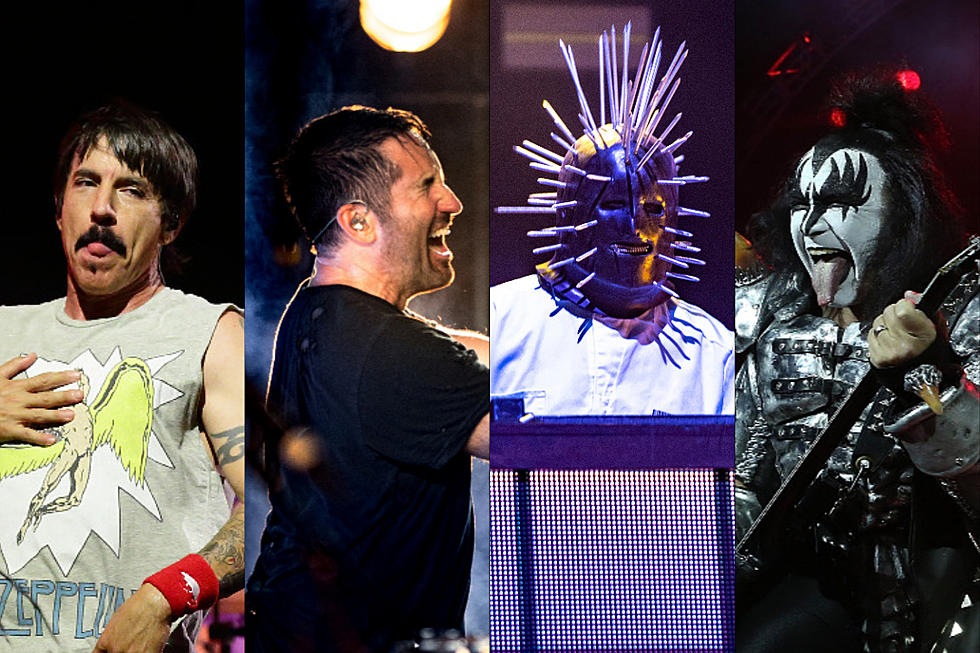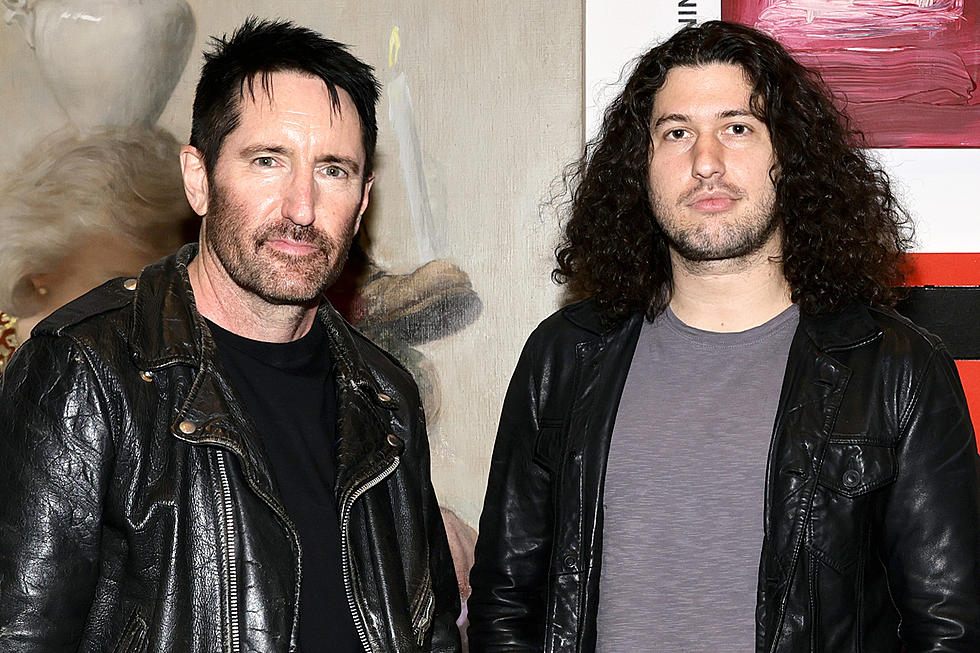15 Years Ago: Nine Inch Nails Looks Back With ‘And All That Could Have Been’
It’s no secret that Trent Reznor is a perfectionist. As a studio musician, he is uncompromising and meticulous in transcribing the music in his brain onto Nine Inch Nails’ albums – which is why it took five years between Pretty Hate Machine and The Downward Spiral and another five between the latter and The Fragile.
So when Reznor decided to chronicle his band’s 2000 “Fragility v2.0” tour with a live album/DVD, it’s no surprise that he was just as meticulous in compiling the live recordings and footage. Instead of picking the best night of the U.S. trek or even cherry-picking the most dynamic performances from the 43 shows, Reznor took out his fine-tooth comb.
He edited the best parts of different live tracks together to create a Frankenstein monster of live “perfection” and called it And All That Could Have Been. Of course, part of this might have been therapeutic for Reznor, who completed rehab for drug and alcohol addiction in 2001 amidst this project.
In addition to the audio component, he worked with Nine Inch Nails art director Rob Sheridan to chronicle the concerts with digital video cameras. Reznor had been displeased with his previous collaborations with outside film production companies and planned to deliver a final concert movie that felt more in tune with his music.
“One thing I think we discovered when I started to work with Nine Inch Nails is whenever we tried to give projects that we had to outside people to work on, the results were always off somehow,” Sheridan said upon the release of And All That Could Have Been. “They didn’t quite get what we were trying to do, trying to get across.”
So instead of the sweeping pans and glossy production that, Reznor felt, marred the professionally shot footage of Nine Inch Nails’ Downward Spiral era, this DVD set would feature a darker, grimier aesthetic, often giving a fan’s eye perspective of the concerts. Reznor and Sheridan were similarly fussy with the video as Reznor had been with the music. Each visual track also was made up of the best portions of different performances. Continuity suffered to feed perfection, or at least the idea of it.
All of this painstaking work is part of the reason why both the audio and visual forms of And All That Could Have Been were significantly delayed, not being released until January 22, 2002 – more than a year and a half after the tour was finished. If that effort didn’t give fans an idea of how important this tour (which Rolling Stone magazine named the best of 2000) and this sort-of “greatest hits live” package was to Reznor, he spelled it out in the release.
“In my eyes, 'Fragility 2.0' was a summation of what we had accomplished up to that time,” Reznor wrote in the DVD edition liner notes. “So this DVD serves as a reminder of achievement as well as a departure point.”
Listen to "Something I Can Never Have"
One of those “departure points” was the bonus CD, titled Still, that came packaged with the live album, and was later released separately. The nine-track album included restrained performances of existing Nine Inch Nails songs (including “Something I Can Never Have” and “The Fragile”) along with new songs, some of which began as ideas for Reznor’s unused film score for Mark Romanek’s 2001 feature film One Hour Photo. Between that aborted project and Reznor’s production work on the And All That Could Have Been DVD set, he was taking a greater interest in film.
“The only thing I’d want to do these days is actual scoring,” he told Audiohead. “I’d love for David Cronenberg to call me on the phone and say, ‘Score a film.’ Quake was fun because they didn’t want hard-rock goofy music going through the game, it was all about atmosphere at the time.”
It would take a few years, but Reznor would eventually enter the world of film scoring, teaming with Atticus Ross on music for a string of David Fincher movies, including The Social Network, for which the team won an Academy Award. Reznor and Ross have also scored Ken Burns’s Vietnam War documentary series.
Looking back on this period of Nine Inch Nails, Reznor now thinks it is less important than he did at the time.
“I can’t watch it at all,” Reznor said in a fan club Q&A. “I was sick for most of that tour and I really don’t think it was Nine Inch Nails at its best – I was certainly not at my best.”
Nine Inch Nails Albums Ranked in Order of Awesomeness
More From Classic Rock Q107










